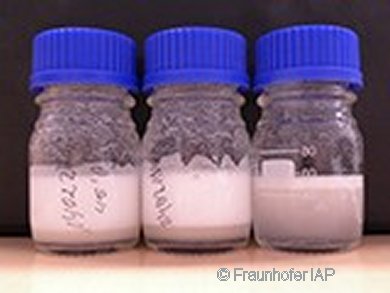Microorganisms that enter into the beer during the brewing process can provide strong variations in taste and smell; the beer can also become cloudy, sour, and unwholesome. Therefore, breweries monitor the production process very closely. However, conventional microbiological methods require five to seven days to detect beverage-spoiling organisms, such as bacteria and yeasts. At this point it is often too late to take corrective action.
Andreas Holländer, Fraunhofer Institute for Applied Polymer Research IAP, Potsdam, Germany, Jutta Schönling, GEN-IAL, Troisdorf, Germany, and colleagues have developed a polymer powder that significantly simplifies these tests and shortens the time that they require to two to three days.
So far, beer has been filtered in special equipment. In this process, the bacteria remain on a membrane and are then elaborately cultivated in a special culture medium before they can be examined microscopically. The new polymer powder is added to the liquid sample and its functionalized surface binds the bacteria efficiently. The pathogens adhere to the 100 to 200 micron powder particles. These can be easily removed along with the microbes in a specially developed system and analyzed directly using various microbiological methods.
This allows to investigate beer and other beverages for infection by pathogens. Membrane filtration is not suitable for the quality control of beverages such as fruit juices, milk, cola, and red wine. They contain so much solid or suspended matter that the filter clogs quickly. Breweries have also only been able to examine small sample volumes of up to one liter via membrane filtration. With the polymer powder, tests with 30 L or more are possible.
According to the researchers, interested users will be able to buy the powder in the spring of this year.
- Fraunhofer Gesellschaft, Munich, Germany
- DE102005002343 and DE102005002342




